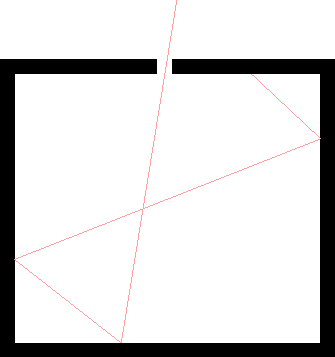Special Relativity
A history and analysis of Albert Einstein's Theory of Special Relativity
Nate Kaaihue Physics 212

source
A history and analysis of Albert Einstein's Theory of Special Relativity
Nate Kaaihue Physics 212

Sir Issaac Newton is often credited with the birth of classical or Newtonian physics. His masterpiece, Principia, lays the groundwork
for classical mechanics with arguably the three most important axioms in science; Newton's 3 Laws of Motion. For many years, it was believed by Newton and
others that classical mechanics could explain all principles of physics. Unfortunately for Newton however (who was probably dead when all of this was
found out anyway), classical mechanics cannot accurately explain certain physics phenomena, particularily near or at the speed of light.
One of the first problems with classical mechanics arose when trying to find the Black Body Radiation. A black body is some object that absorbs
all electromagnetic (EM) radiation. Thus, at thermal equillibrium, a black body object must release energy as radiation at the same rate that it absorbs energy.
Imagine a black box with a small hole at the top that can let light into a cavity. The light has to undergo many reflections to escape and if
the black box is painted...black...the cavity inside will let virtually no light out.

In the early 19th century Lord Rayleigh and Sir James Jeans derived a formula using classical mechanics to calculate the
energy density per unit area;
The equation predicts that as the electromagnetic wavelength approaches 0 (higher frequency), the radiation emmitted approaches infinity.
It can also be concluded that when dealing with higher frequencies, all energy would be instantly radiated away. These two conclusions
are wrong both theoretically and empirically, the Rayleigh and Jeans equation did not match their data.
These findings were dubbed the 'ultraviolet catastrophe'. Luckily, it was solved the same year with Planck's development of an energy density
equation based on the assumption that E = h*λ;
source
Planck's equation matched data very well, leading him to derive the equation.
But the damage was already done. It had been shown that Newtonian physics had failed to
explain a phenomena within the universe. A new theory needed to be born.